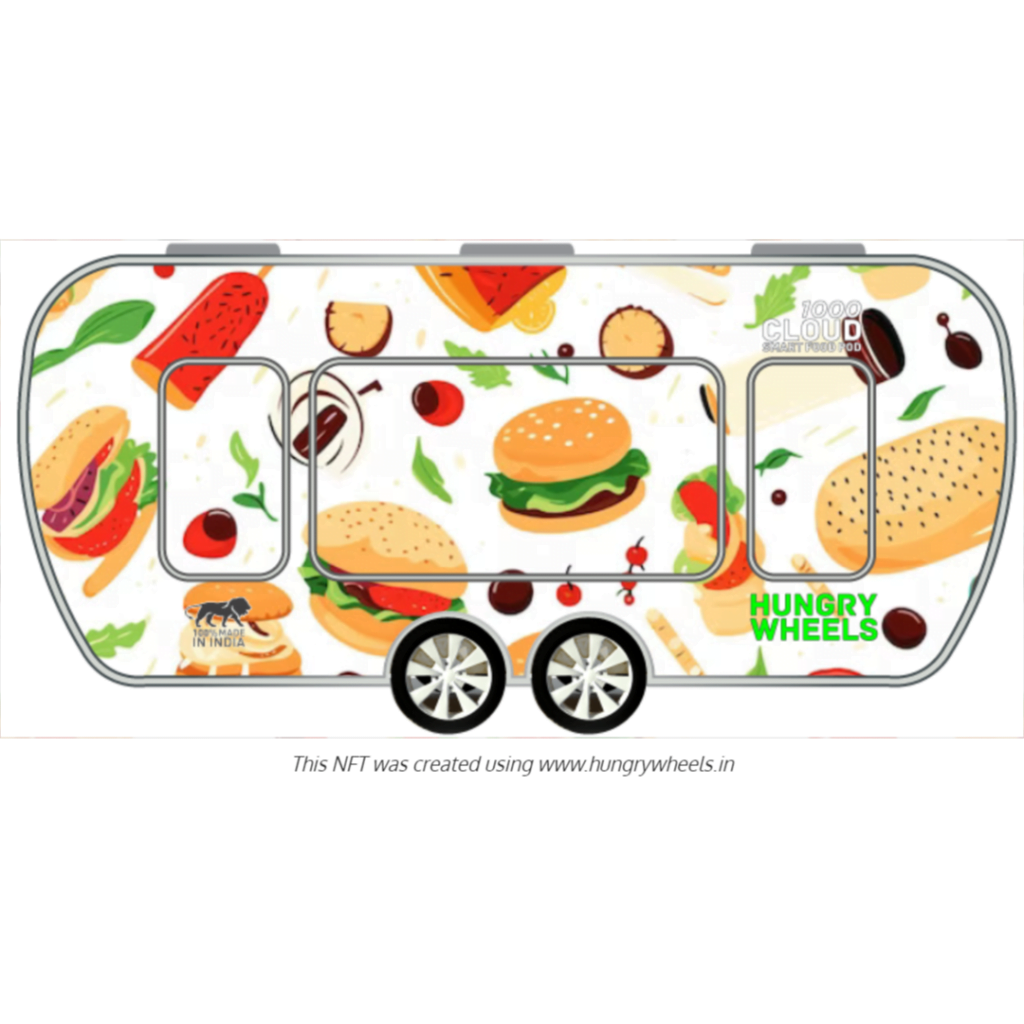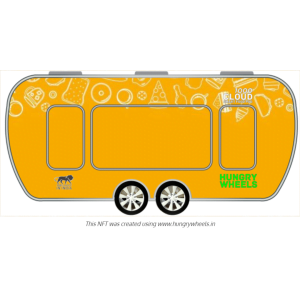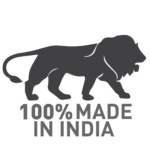Food Truck Business in India is on Boom Nowadays:
The food truck business in India has seen a significant rise in popularity over the past decade, driven by the increasing demand for diverse and gourmet street food options. These mobile eateries offer flexibility and a unique culinary experience, making them a hit among urban foodies.
However, a new trend called the “Food POD” is emerging as an alternative to traditional food trucks. Food PODs are stationary units equipped with modern features such as advanced kitchen appliances, better waste management systems, and enhanced customer interaction technologies. Unlike food trucks, which need to relocate periodically, Food PODs provide a stable location for regular customers while maintaining the novelty and variety that food trucks are known for. This innovative approach is transforming the street food landsc
Starting a food truck business in India can be highly lucrative and rewarding. Here are 10 reasons why:
1. Low Initial Investment:

One of the primary advantages of starting a food truck business in India is the relatively modest initial investment required. While opening a traditional brick-and-mortar restaurant demands substantial capital for property, interior design, and infrastructure, a food truck’s startup costs are notably lower. This encompasses expenses such as acquiring a suitable vehicle, outfitting it with necessary kitchen equipment, and stocking up on initial inventory, making it an accessible option for budding entrepreneurs with limited funds.
2. Mobility and Flexibility:
The inherent mobility of food trucks is a game-changer in the culinary landscape. Unlike stationary eateries, food trucks can traverse various locations, responding to shifts in demand, seasonal changes, or the buzz of special events and festivals. This adaptability not only allows entrepreneurs to explore different neighborhoods and markets but also enables them to strategically position themselves where foot traffic is high and consumer interest is ripe, maximizing profit potential.
3. Growing Urban Population:
India’s urbanization is in full swing, with more and more people flocking to cities in search of better opportunities and lifestyles. This urban boom translates into a burgeoning market for convenient, affordable, and diverse dining options. Food trucks, with their nimble operations and ability to cater to on-the-go urbanites, are uniquely poised to capitalize on this growing demand, serving up tantalizing treats to an ever-expanding customer base.
4. Culinary Innovation:
Food trucks serve as dynamic hubs of culinary creativity, offering chefs and cooks a platform to push the boundaries of flavor and presentation. Freed from the constraints of a static menu, these mobile kitchens can experiment with bold flavors, fusion cuisines, and avant-garde cooking techniques, enticing adventurous foodies in search of novel gastronomic experiences. This spirit of innovation not only keeps customers intrigued but also garners attention and acclaim, setting food trucks apart as epicenters of culinary innovation.
5. Lower Overhead Costs:
Operating a food truck entails significantly lower overhead costs compared to traditional restaurants. With no rent to worry about, reduced utility bills, and a leaner staff structure, food truck owners can enjoy healthier profit margins while still delivering quality meals at affordable prices. This cost-effectiveness not only enhances financial sustainability but also allows for greater flexibility in pricing strategies, giving food trucks a competitive edge in the market.
6. High Visibility and Marketing Potential:
Thanks to their mobility and eye-catching designs, food trucks are natural magnets for attention and foot traffic. By strategically positioning themselves in high-traffic areas, attending popular events, or leveraging social media for promotion, food truck operators can effectively amplify their brand visibility and reach a diverse audience of potential customers. This inherent marketing potential transforms each outing into a promotional opportunity, driving awareness and generating buzz around the food truck’s offerings.
7. Supportive Ecosystem:
Across many Indian cities, there’s a growing recognition of the value that food trucks bring to the culinary landscape. Local governments and municipal authorities are increasingly supportive, offering designated parking spots, organizing food truck festivals, and streamlining regulations to create a conducive environment for mobile food vendors. This supportive ecosystem not only facilitates easier entry into the market but also fosters a sense of community among food truck operators, encouraging collaboration and mutual growth.
8. Trend Towards Street Food:
In recent years, the trend towards street food has surged, reflecting Indian culture’s profound love affair with flavorful, on-the-go eats. The emergence of food trucks has revolutionized this landscape, presenting a novel approach that marries the allure of traditional street fare with modern standards of hygiene, regulation, and creativity. These rolling kitchens not only cater to local palates but also entice global food enthusiasts seeking authentic culinary experiences.
9. Scalability:
One of the inherent advantages of food truck businesses lies in their remarkable scalability. As entrepreneurs taste success, they can seamlessly expand their operations by adding more trucks to their fleet, diversifying their offerings, or venturing into lucrative avenues such as catering services. Some ambitious operators even leverage their brand’s popularity to transition from the mobile format to establishing brick-and-mortar restaurants, further solidifying their presence in the culinary landscape.
10. Work-Life Balance:
Beyond the gastronomic delights they offer, food trucks also serve up a tantalizing recipe for improved work-life balance. Unlike the demanding schedules of traditional restaurants, food truck owners enjoy the flexibility to tailor their operating hours to suit their lifestyle preferences. By cherry-picking events and strategic locations, they can curate a schedule that allows for quality time with family and friends while still satisfying the cravings of eager customers.
These factors make food trucks an appealing entrepreneurial venture in the dynamic and diverse Indian market.
Adaptability to Changing Trends:
The food industry is dynamic, with trends evolving rapidly. Food trucks are better positioned to adapt to changing consumer preferences and emerging food trends, allowing entrepreneurs to stay ahead of the curve and remain relevant in a competitive market.
In the ever-evolving landscape of mobile cuisine, the choice between a food truck and a food pod can be a challenging decision. While food trucks present unique benefits, opting for a food pod often proves to be the superior choice in terms of convenience, versatility, and engagement with customers.
Hungry Wheel Food Pods offer an unbeatable blend of sustainability, safety, support, and convenience, making them the optimal selection for mobile food vendors. With zero emissions, a family-friendly atmosphere, official approval, flexible financing, easy compliance, and extensive insurance coverage, Hungry Wheel sets the benchmark for excellence in the mobile dining sector.
For any further inquiries or to discover the innovative features of Hungry Wheel’s eco-friendly food pods, please feel free to reach out. We’re dedicated to aiding you in revolutionizing your mobile food enterprise. Contact us today to embark on your journey towards sustainable and prosperous mobile dining ventures.
To sum up, food pods present a winning amalgamation of community, culinary variety, convenience, affordability, ingenuity, and local backing that distinguishes them as the ultimate option for mobile dining experiences. Whether you’re a vendor aiming to showcase your culinary expertise or a customer in search of a memorable gastronomic escapade, embracing the food pod revolution ensures an unparalleled feast for the senses.
FAQs:
1. What is a food pod, and how does it differ from a food truck in the context of the Indian market?
A food pod is a modern alternative to traditional food trucks business in India, featuring innovative features and designs. Unlike food trucks, which are mobile kitchens on wheels, food pods are stationary units that offer flexibility in location and operation.
2. What are some advantages of starting a food pod business compared to a food truck business in India?
Food pods in India offer several advantages, including lower initial investment costs, greater customization options in design and branding, and the ability to operate in locations where food trucks may face restrictions or limitations.
3. Are food pods a viable option for aspiring entrepreneurs in the Indian food industry?
Yes, food pods present a viable opportunity for entrepreneurs in the Indian food industry, especially those looking for a cost-effective and innovative way to enter the market with unique culinary concepts and offerings.
4. How can one go about setting up a food pod business in India?
Setting up a food pod business in India involves several steps, including market research, securing permits and licenses, designing and customizing the pod, sourcing equipment and ingredients, and identifying strategic locations for operation.
5. What are some popular food pod concepts or cuisines in the Indian market?
Popular food pod concepts in India range from traditional street food like chaat and kebabs to modern fusion cuisines like gourmet burgers, artisanal pizzas, and specialty desserts. The key is to offer something unique and appealing to the target audience.
6. What are the regulatory requirements for operating a food pod business in India?
Regulations for operating a food pod business in India vary by location and may include obtaining permits for business operation, health and safety inspections, adherence to food hygiene standards, and compliance with zoning laws and regulations.
7. How does the mobility aspect of food pods compare to traditional food trucks in India?
While food trucks offer mobility by being able to move from one location to another, food pods in India offer flexibility by being able to set up in both permanent and temporary locations, such as markets, festivals, events, and designated food pod parks.
8. What are some innovative features or designs commonly found in food pods in India?
Innovative features and designs of food pods in India may include eco-friendly materials, collapsible or expandable structures, integrated technology for ordering and payment, and customizable branding elements to attract customers.
9. How can a food pod business in India effectively market itself to attract customers?
Effective marketing strategies for food pod businesses in India may include social media promotion, partnering with local events or festivals, offering discounts or promotions, collaborating with influencers or food bloggers, and maintaining a strong online presence.
10. What are some potential challenges or considerations for entrepreneurs interested in starting a food pod business in India?
Challenges for food pod businesses in India may include competition from established eateries, navigating regulatory requirements, managing logistics and supply chain, securing prime locations, and maintaining consistent quality and customer satisfaction. However, with proper planning and execution, these challenges can be overcome to build a successful venture.
Conclusion:
In conclusion, the decision to open a food truck business in India presents a myriad of advantages that challenge the traditional restaurant model. From lower startup costs and flexibility to adaptability in diverse locations, food trucks offer a unique entrepreneurial journey that aligns with the evolving tastes and preferences of the Indian culinary landscape. Consider the rolling success of a food truck venture and embark on a culinary journey that goes beyond the traditional boundaries of a restaurant.

Mobility architect, system designer, and ecosystem builder
Since 2012, he has developed various scalable vehicle platforms and solutions for retail, logistics, and defense. As a possibilist, futurist, and innovator, Vikram’s designs have powered the success of Food POD mobile kitchens at ITC, TAJ Hotels, Qmin, Manipal Group, and more.



















